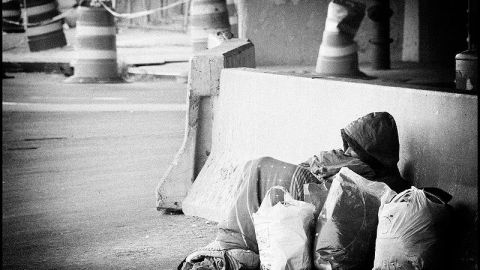Two Americas

Over the course of 2009, the Dow Jones industrial index grew a healthy 17%. The Nasdaq grew a remarkable 41%. Over the same period the average compensation—the total cost of wages and benefits—for workers in the private sector grew just 1.5%. Adjusted for inflation, American workers made, on average, 1.3% less at the end of year than at the beginning of the year, and just 1.1% more than they did at the end of the last recession in 2001. That is, if they had jobs at all.
Slow wage growth, of course, is great news for the stock market because it keeps corporate costs down. It’s also more proof that, as I’ve argued, the growth in the market shouldn’t be confused with improvement in the economic conditions of ordinary Americans. And it puts in perspective the news that the GDP may have grown 5.7%—technically the fastest rate in six years—at the end of 2009. Fully 3.4 percentage points of the increase can be attributed to businesses restocking their inventories, and doesn’t represent a real increase in the underlying demand for goods and services. Consumer spending actually grew just 2%, a little down from the previous quarter. And even after last quarter’s growth, the GDP is still down 1.9% from it’s high in 2008.
When the government stimulus packages run out, consumer spending will have to pick up the slack or the recovery will stall. But consumer spending—and the economy—isn’t likely to pick up until wages and employment grow substantially. As Dan Froomkin points out, part of the problem is that not only is the average American worker making less than they were a year ago, but that the financial crisis also wiped out a huge amount of their assets. A Brookings study finds that American households lost $13 trillion in wealth—or about 15% of their net worth—between 2007 and 2009. Since housing prices crashed one in four homeowners have found themselves “under water”—owing more on their mortgages than their houses are worth. And, of course, more than 15 million Americans are out of work, about twice as many as at the end of 2007. Americans simply don’t have much money to spend, and aren’t likely to for some time.
A large part of the apparent growth in the economy over the last ten years was actually an artifact of the credit and housing bubbles, and not the product of any underlying increase in our productivity. It’s probably not a coincidence that over the same period a huge amount of what economic gains there were went to the wealthiest 1% of the population. But in order to pull out of this recession all of us will have to be a part of the recovery.





